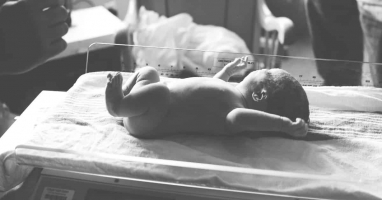I wrote this article in Japanese and translated it into English using ChatGPT. I also used ChatGPT to create the English article title. I did my best to correct any translation mistakes, but please let me know if you find any errors. By the way, I did not use ChatGPT when writing the Japanese article. The entire article was written from scratch by me, Saikawa Goto.
Introduction
Movies and books covered in this article

I will write an article about this movie/book
What I want to convey in this article
The movie successfully portrays the story with only the setting of “a girl going to New York for an abortion.”



I think everyone, regardless of gender, should know the reality that these girls face.
Three takeaways from this article
- “Never Rarely Sometimes Always” as a title is a declaration that “abortion itself is the focus.”
- The way the story progresses with the two girls in silence feels very real.
- I was also very interested in the presence of the protagonist’s best friend.



The scene where the protagonist tearfully answers the counselor’s questions in a matter-of-fact tone was particularly impressive.
Self-introduction article


Please refer to the self-introduction article above to learn about the person writing this article. Be sure to check out the Kindle book linked below as well.


Published Kindle books(Free on Kindle Unlimited)
“The genius Einstein: An easy-to-understand book about interesting science advances that is not too simple based on his life and discoveries: Theory of Relativity, Cosmology and Quantum Theory”
“Why is “lack of imagination” called “communication skills”?: Japanese-specific”negative” communication”
The quotes used in this article are based on notes taken at the movie theater from movies in Japanese and are not direct quotes from the foreign language original movies, even if they exist.
The Greatness of the Film “Never Rarely Sometimes Always”, Which Took on a Very Big Challenge and Succeeded in Meeting it


The content of the movie can be summarized by the sentence, “Autumn, a 17-year-old girl who becomes pregnant unintentionally, goes to New York for an abortion.” The film focuses solely on this point, which makes it a challenging work, but I felt that it succeeded as a wonderful movie.


The Amazingness of Thoroughly Depicting Only “Abortion”
If a story deals with “unintended pregnancy,” it is natural to depict various elements such as “parental reactions and subsequent relationships” and “the story of the man who impregnated her.” By incorporating such various elements, “pregnancy/abortion” can be depicted on various layers.
However, in this movie, none of those elements are depicted. Autumn secretly goes to New York without telling her parents, and the man involved is not even mentioned. They just keep focusing only on “the girl who is facing the reality of abortion.”
This can be said to be a very challenging structure. However, I think they have dared to take on that difficult path and have successfully created a wonderful work. Above all, I felt that this fact is more than anything else, amazing.





Well, as usual, I went to see this movie without even knowing that it was about “abortion”.
It’s the type of movie you usually wouldn’t watch, but you were just curious, weren’t you?
You can feel the intention of focusing only on “abortion” from the movie title.


The Japanese title of the movie (which would be translated as “The world reflected in the eyes of a 17-year-old”) was completely different from the original title, so when the title “Never Rarely Sometimes Always” was displayed at the beginning of the movie, I thought it was something descriptive like “Based on a true story” that often appears in movies, rather than the actual title. However, as “Never,” “Rarely,” “Sometimes,” and “Always” appeared in the movie and “Never,” “Rarely,” “Sometimes,” and “Always” was displayed again at the end, I came to understand that this was the original title.


The scene where “Never,” “Rarely,” “Sometimes,” and “Always” appear is quite impressive in the movie. These are the “choices” provided when answering questions from a counselor.


I do not know about the system and practice of abortion in the United States, but at least in this movie, it portrays a situation where abortion can be performed without parental consent. It is unclear whether such a system does not exist in Pennsylvania, where she lives, or she went to New York afraid of spreading rumors in the state. In any case, she is in a situation where abortion can be performed without parental consent.
I don’t know if it’s because they don’t require parental consent, or if they follow the same procedure no matter who they are, even that, but Autumn is told to answer various questions by a counselor. And, she is urged to answer those questions by choosing from “Never,” “Rarely,” “Sometimes,” or “Always.”



Knowing that this is the original title, I thought this scene must faithfully reproduce the “pre-abortion conversation.”
I imagine that those who have experienced it will probably realize from this title that it is a story about “abortion.”


This scene was the most memorable in terms of content and visuals.
From Autumn’s response to the counselor, we can glimpse the background of “why she became pregnant,” which had not been conveyed to the audience until then. Throughout the movie, there are very few lines and explanatory descriptions. I didn’t have much information to understand the situation, and for a while after watching the movie, I even thought “Maybe she’s planning to run away from home.” In such a situation, this counseling scene can be said to be important first and foremost in understanding the situation in which Autumn finds herself.


In addition, I felt a strong sense of power in the visuals. Autumn is shown facing the camera in a one-shot, and the counselor’s voice, who is probably facing her, echoes chillingly. I don’t know if the counselor is deliberately not putting emotion into it or if it’s become routine, but in any case, the questions from the “mechanical” counselor continue relentlessly. In the midst of this, Autumn quietly shed tears because she would have thoughts about the past that the questions evoke, and the reality she is facing right now.


Overall, because the situation and emotions are not very visible in the film, Autumn’s behavior, which clearly expresses emotions, moves the heart. Also, it feels like all aspects of the reality of “abortion” are condensed into that scene, and I quietly felt anger towards “masculinity,” including myself, who is involved in that part of reality.


The title “Never Rarely Sometimes Always” probably conveys to those who have had an abortion, and even to those who have not, it is a very unique title that will give them a vague sense of discomfort. I think it’s an excellent title for a work of art, and the fact that they chose this title shows their determination to focus solely on “abortion”.
When you think about it, the Japanese title is a bit ambiguous, isn’t it.



They probably hesitated to use a literal translation of the original title because it would be too unclear what the story is about.


The Merits of “Almost No Dialogue” in Conversations
The main characters of this movie are Autumn, who becomes pregnant, and her only friend Skyler. The two of them work at the same part-time job and take a long-distance bus together to New York, with Skyler accompanying Autumn.
However, these two hardly speak in the movie. While the film as a whole has very few lines, even though Autumn and Skyler’s scenes dominate most of the movie, the scene where these two speak is almost non-existent.


I felt that this aspect made the movie very realistic.


In movies and novels, there would be often situations where we feel like “Would family or long-time friends really have that kind of conversation now?” By trying to have the characters explain the setting or situation through dialogue, the depiction can become very unnatural. While it’s necessary to some extent to make sure the audience understands the story, if it’s not handled well, it can create a sense of discomfort.


When you feel that “they are forced to speak for the convenience of the screenwriter or the author,” suddenly they only look like “pawns moving the story,” don’t they.



It’s amazing how a good writer can make conversations that should be originally unnatural, but don’t feel that way.
On the other hand, in “Never Rarely Sometimes Always,” I felt that the film prioritized realistic depictions over conveying the setting and situation to the audience. As I mentioned earlier, I didn’t understand the setting of “going to New York for an abortion” until halfway through the movie, and I even thought that Autumn and Skyler were running away from home together. Their conversations are almost nonexistent, to the point where they don’t even make the audience understand the setting.
However, if I were in a situation like Autumn or Skyler, I could imagine their silence feeling natural. If I were in Autumn’s shoes and had an unwanted pregnancy, I wouldn’t want to talk, and if I were in Skyler’s shoes and had to accompany a friend for an abortion, I would be at a loss for words and just be silent.


In that sense, I felt the silence of the two characters was very realistic. However, it must have taken courage to develop the story with the two main characters remaining silent for most of the film. Moreover, I don’t think the two main characters have much acting experience, unlike experienced famous actors. The composition of developing almost the entire story while keeping these two silent is very challenging.
Also, in terms of visuals, I think there is significant meaning in the development where Skyler accompanies Autumn on her journey. The most significant point is that “various meanings arise from Autumn’s silence.”
As Autumn continues to remain silent on her way to New York with Skyler, the audience will interpret various meanings there. Some may interpret it as “they understand each other’s feelings without speaking because they are close friends” while others may interpret it as “there are things they can’t talk about precisely because they are friends.”





I feel like the fact that “it works even in silence” is proof of being best friends.
Skyler’s silent demeanor is quite nice.
In the movie, it is suggested that Skyler is the only person whom Autumn can trust, as she has almost no friends. Therefore, it is also possible to interpret that “because she is the only best friend, there are things that cannot be talked about.”


If Autumn had been heading to New York alone, it would have been difficult to interpret the meaning behind her silence. While the movie unfolds in silence, the presence of Skyler adds depth to that silence. As the saying goes, “Speech is silver, silence is golden,” and this movie embodies that idea.


While the focus of the movie is on Autumn, the simple story structure and the dominance of silence make Skyler stand out even more. In a sense, it is said that Autumn is “taking the actions one should take as someone who has had an unwanted pregnancy. However, I feel that Skyler is not necessarily in the same boat. Skyler would have other options, such as advising her to talk to her parents, but Skyler’s quick decision to “take a day off from her part-time job, follow Autumn and cuddle up quietly” would not necessarily a “natural” action.





The discomfort with Skyler was partly because I misunderstood that “Autumn and Skyler were trying to run away from home”.
“While it’s understandable that Autumn, who became pregnant, wants to run away from home, why did Skyler decide to do so easily?” you thought, didn’t you.
Also, although it’s not directly related to the overall theme of the movie, Skyler was subjected to sexual harassment by someone who seems to be the store manager at work. However, it seems like she was “accepting such an unfair situation” in a way. It’s difficult to think about the reasons behind this, whether it’s because it’s hard to find work in a rural town or due to Skyler’s personality, as there is no specific information. However, I felt that Skyler, who gives off a somewhat unique vibe in the shadow of Autumn, the absolute protagonist, is also an interesting character.


Conclusion
When depicting “unwanted pregnancy” or “abortion” in fiction, I feel like there’s always a hidden message like “enlightenment.” Of course, that can be a good thing in some ways.
However, in this work, there is no such “enlightening” atmosphere. If anything, I sense a nuance that takes a subjective view of “unwanted pregnancy” and “abortion” and portrays them as “the worst thing”.


In the end, it may lead to “enlightenment,” but I felt that the movie was mainly focused on conveying the “real feelings of young women who have fallen into difficult situations.”
As a man, there are parts that I may not fully understand, but it could be also considered a valuable work in the sense that men can also understand the “worst” that women face and properly receive the guilt of “causing pregnancy.”


Published Kindle books(Free on Kindle Unlimited)
“The genius Einstein: An easy-to-understand book about interesting science advances that is not too simple based on his life and discoveries: Theory of Relativity, Cosmology and Quantum Theory”
“Why is “lack of imagination” called “communication skills”?: Japanese-specific”negative” communication”







コメント